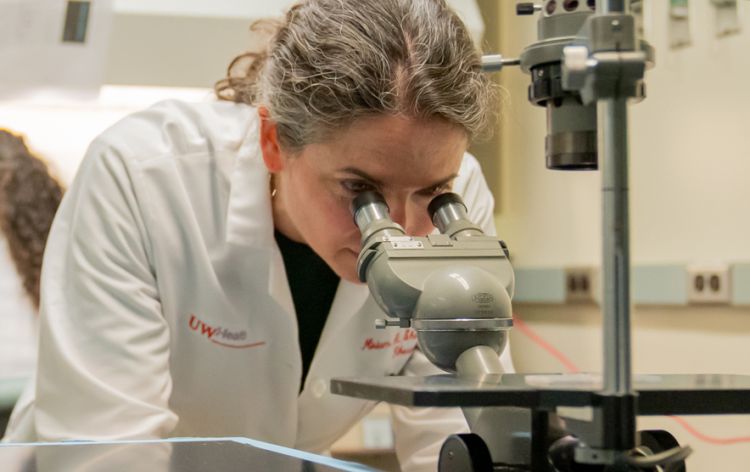Shelef lab discovers unique rheumatoid factors in COVID-19 patients

In brief
A new study led by Miriam Shelef, MD, PhD, associate professor, Rheumatology, and published in the Journal of Autoimmunity, reports the discovery of unique rheumatoid factors in a large group of patients infected by the SARS-CoV-2 virus during the COVID-19 pandemic.
Rheumatoid factors (RFs) are autoimmune antibodies that latch onto other antibodies. They are typically associated with rheumatoid arthritis but also can be found less commonly in other inflammatory conditions.
Curiously, the RFs identified in the new study appear to be unique to COVID-19—flying in the face of the long-held belief that these antibodies are essentially the same from disease to disease.
They can also latch onto many other protein targets, including pieces of the SARS-CoV-2 virus itself. This striking behavior, or polyreactivity, is based on a three amino acid motif—a phenomenon researchers have not seen before.
Why it matters
This discovery provides fresh insights into the nature of rheumatoid factors as well as possible links between viruses and autoimmune diseases. It opens the door to further exploration into how these antibodies may be helpful in fighting infection and how they may be harmful on a path towards autoimmunity.
In the 90-second video below, hear directly from Dr. Shelef about the research and its implications.
Banner: Dr. Shelef examines slides under a microscope. Credit: Clint Thayer/Department of Medicine.